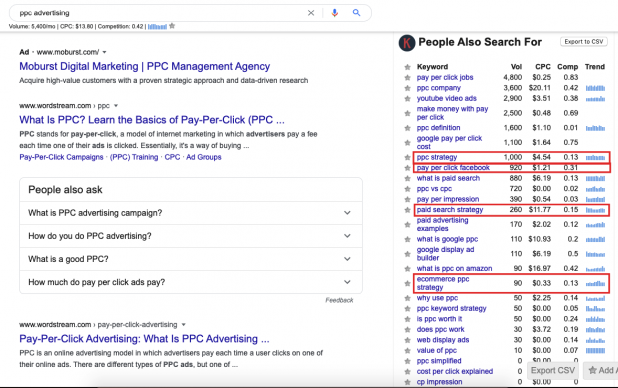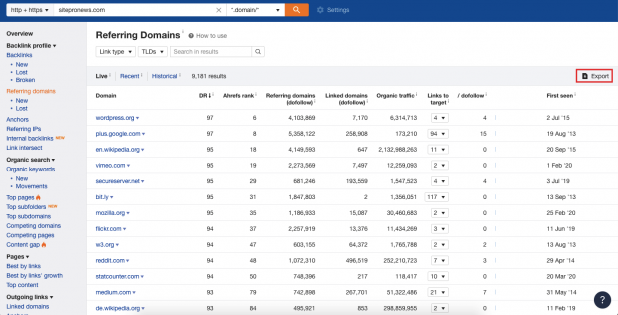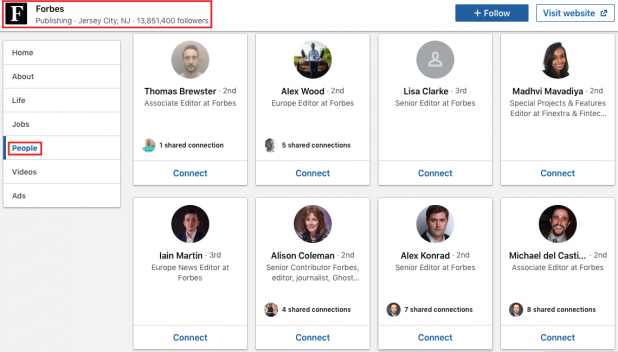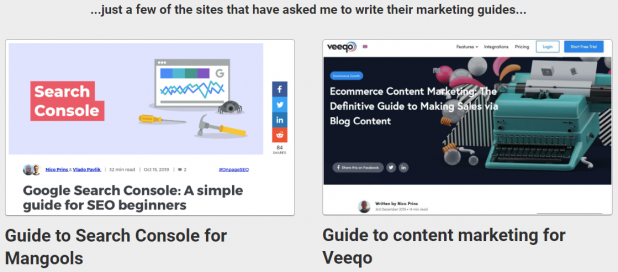When it comes to establishing your professional credentials through digital marketing, few methods can match the effectiveness of guest posting. Contributing content to trusted, relevant sites will increase your brand exposure and establish you as a thought leader in your field.
Why is guest posting so powerful? Is the effort to search for suitable sites, reach out to site owners, and write long-form content worth it? Why not just use social media exclusively?
Guest posting should always be part of a robust digital marketing strategy. Here are just a few reasons why:
- It exposes your content, your site, and your brand to a broader audience.
- It helps to expand your personal and professional network.
- It grows your social media following through shares, likes, and comments.
- It increases your site’s authority rating.
- It allows you to gather useful feedback from your audience.
Now that we’ve established that the benefits of guest posting vastly outweigh the effort, it’s time to walk you through the process. Today, I’ll show you how to use guest posts to boost your professional credibility.
Establish what you want to be known for
Before you start pitching or writing, you need to define your goal. What do you want to be known for? When your target audience hears your name, what do you want them to associate with you?
Your branding must take center stage here, determining not only the topics you will write about but also your tone of voice and the websites you will target for guest posting opportunities.
Neil Patel lists three main reasons for guest posting:
- To position yourself as an authority within your niche.
- To drive traffic to your website.
- To build backlinks to your website, increasing your domain authority and search engine rankings.
Guest posts function as a sort of online CV of your work. Therefore you need to strategically approach guest posting, keeping in mind how you would like to be perceived and precisely what you want to be known for.
Create a list of topics to write about
Choosing the topics you’ll write about is a vital part of your guest posting strategy. This step begins with understanding your audience.
If you’re new to blogging, you get to decide who will read your content by consistently tailoring it to your ideal reader. Your ideal reader persona – your audience’s demographic data, pain points, and similar important information – should always be reflected in the content you produce. Your guest posts must be relevant to your industry and your readers.
For example, if you offer PPC services, you’d want to create a suitable list of keywords to target based around your niche. Assemble a list of keywords that are relevant to your niche. I use Keywords Everywhere.
There are several articles I could write based around just those keywords. They include:
- PPC strategy
- Pay Per Click Facebook
- Paid search strategy
- Ecommerce PPC strategy
All of these keywords look like topics you could write guides around.
Create a list of 20+ keyword focused guest post ideas you could pitch that your ideal customer would find useful. Now that you’ve got your keywords, it’s time to create a list of websites you’d like to write for.
Identify relevant sites for your guest posts
All your fantastic topic ideas will only be useful if you can place them on relevant sites.
First, to use guest posts strategically to improve your search rankings and establish your online credibility, you need to understand how Google assesses backlinks. SEO experts generally agree on the following vital criteria that you’ll want to focus on when identifying target sites:
- The relevance of the website to your niche. If you want to promote your law practice, you cannot expect to get high-quality backlinks from a surfing website (unless you specialize in sports law, a niche within a niche!)
- The website’s Domain Rating or Domain Authority. The higher the Domain Authority, the more credible the site is.
- Visitor numbers. More traffic means more readers who will read your guest post and potentially click on a backlink.
- Trust flow. This measures the number of quality websites that link back to a site, indicating how trusted the content is.
Essentially, you want to find the most popular sites in your niche, and guest post for them.
When you’re guest posting for professional creds, there is another metric that matters:
- What sites do the experts in your niche read?
These sites might not be incredibly popular in terms of search traffic, and might not have the best Domain Rating. However, writing for such a site will impress experts in your industry.
Creating a list of the most popular sites in your niche should be relatively easy. First, brainstorm to come up with a list of relevant websites. You can then review the backlink profile of these sites to expand that list using a tool like Ahrefs.
High-authority domains will usually have thousands of backlinks, and not all of them will be useful. I recommend trimming the list by filtering for sites that have Domain Ratings of 70 or above.
You can assess the shortlist by relevance, trust flow, and the typical number of visitors. Using this process, you should be able to identify around 100-200 relevant, high authority sites to pitch.
How to pitch to authority sites in your niche
Authority sites are notoriously difficult to pitch. They are the most popular sites, so their editors get inundated with emails requesting guest posts. I recommend using a mixture of LinkedIn outreach and cold emails to contact editors.
LinkedIn outreach is easy. Here’s how to do it in four simple steps:
- Search for the publication and then select the company page
- Click on the “People” tab on the menu
- Search for employees with a job title like “Editor” or “Writer”
- Connect with the person and send them your guest post request
Here’s what I found when I searched for the position of Editor at Forbes.
The great thing about this approach is that even if they don’t respond, you now have the names of relevant editors at these publications. You can then use an email finder to get their email address. This gives you a second channel to make your pitch.
Use your content as social proof on your landing page
As you start to build a robust portfolio of guest posts on high-quality sites, you can use them to demonstrate your credibility. One effective way to use your content as social proof is to reference these publications on a landing page. You have the choice to either reference the publication on your landing page or reference your guest post.
Here’s an example from the homepage of the website Launch Space, where the author references his guest posts.
Nico Prins, the founder of Launch Space, shared how this strategy benefitted his business.
“I worked hard to write a range of marketing guides for authority sites. These guest posts helped establish my credentials as a SaaS consultant and played a direct role in convincing many of my existing customers to work with me.”
Fame and brand recognition are important elements in the success of a business. Strategic guest posting on topics relevant to your niche is a very public way to build up your authority as an expert in your field.
Building your credibility through strategic guest posting
In digital marketing, social proof is one of the most powerful currencies. Anyone can declare they have particular expertise or abilities, but proving the validity of your claims will set you apart from your competition.
Guest posting is a proven way of establishing your professional credentials. It allows you to build a CV of published content that showcases expertise in your niche, while also driving traffic to your website and improving your domain authority through high-quality backlinks.
To make guest posting work for your business, you must approach it strategically and embed it as a critical part of your digital marketing plan. Remember the four key steps we have discussed in this article:
- Establish your goal in guest posting – for what do you want to be known? What is your unique selling point, and who is your ideal customer?
- Identify topics to write about, using keyword research, and always keeping your target audience in mind.
- Identify relevant sites to pitch to, using key metrics such as Domain Rating, trust flow, and traffic numbers to inform your decisions.
- Use your guest posts as social proof on your landing page.
Guest posting is not a quick win, nor is it something you only have to do once. It takes time and consistent effort to build a strong portfolio of guest posts. But if you take the time and put in the hard work, you will reap the rewards.









